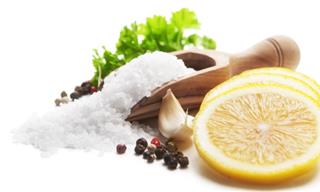

Why do mosquito bites itch?
According to Jonathan Day Ph.D., a mosquito researcher and professor of medical entomology at the University of Florida, "as part of the feeding process, all blood-feeding organisms introduce saliva into the wound." Adding that "proteins in a mosquito's saliva prevent blood clotting, which allows the mosquito to extract blood more quickly and efficiently. Once the mosquito has finished her meal and departed, her salivary proteins stay behind. Your immune system sees these proteins as a foreign substance and immediately attacks them with histamine."
Histamine is an immune chemical your cells release in response to the presence of an injury, allergens or other irritants. It's this histamine that causes the itching and swelling which some people experience following a mosquito bite - emphasis on some people. This is because, surprisingly, not everyone experiences an itchy reaction to mosquito bites. "For most people, the first time they are bitten by a type of mosquito, they get that reaction. But as you're bitten more, most people cease to have a reaction."
How to make mosquito bites stop itching
The best way to prevent itchy mosquito bites is to avoid getting bitten in the first place by using a good mosquito repellent. The good news about mosquito bites is that they tend to stop itching within two to three days. But if you don't want to wait that long, here are six simple ways to stop mosquito bites from itching:

1. Swab the bite with rubbing alcohol
To reduce itching and that histamine response, rubbing alcohol works really well. Alcohol clears away the proteins in the mosquito's saliva - what your immune system would normally react to with itching or swelling. "Rubbing alcohol also has a soothing and cooling effect," Jonathan says.
2. Apply ice, or a cold seltzer can
Anything sufficiently cold, like an ice cube can prevent swelling and should also provide temporary relief from itching. Ice won't remove or neutralize the saliva proteins the mosquito left behind, so your bite will start to itch again the moment you remove the cool source. But, if you are in agony and want a respite, ice is an effective option. You can also use a strap-on ice pack if you have a number of bites in a concentrated area.
3. Dab on calamine lotion
Calamine lotion can be soothing. This pink-hued, OTC (over-the-counter) topical treatment contains zinc oxide, which has long been known to have anti-itch properties. The downside is that calamine needs to be reapplied several times a day to keep the itch away.

4. Pop an oral antihistamine
Most OTC allergy drugs, such as Benadryl, Claritin, and Zyrtec work in part by turning off your body's histamine response, which is why they are called antihistamines. Since this histamine response causes the bite-related swelling and itching, these drugs can provide major relief, according to resources from the University of Washington. If you're dealing with multiple bites and dabbing on calamine isn't getting the job done, or you're headed somewhere where having legs slathered in pink cream isn't appropriate, an oral antihistamine is a better option.
5. Reach for baking soda
Combine baking soda with a little water - just enough to form a paste. Apply it to your bites, which should help you experience a relief in itching. Should you have to endure many bites, you could add a quarter of baking soda to a bath to quell the itch.
6. Slather on hydrocortisone cream
This cream is anti-inflammatory and will help keep the swelling down. It has also been shown to relieve itching. Apply 0.5% or 1% hydrocortisone cream a few times a day to relieve your itch.

Un-Hunch Your Shoulders Easily With These 7 Exercises!
Got hunched shoulders? This guide will help you improve your posture.

Suffer From Knee Pain? Here Are 6 Moves You Can Do
Banish knee pain today with these 6 exercises.
 6:33
6:33
Do You Slouch Often? These 3 Simple Exercises Will Help
How can you improve your posture? Here are three exercises you should try.

Minute Clinic: Healthy Habits That Take Under 60 Seconds
These healthy habits all take less than a minute to perform, yet have significant benefits for your well being.

WARNING: These Fresh Foods Should Never Be Stored Together
What are the best ways to store fresh fruit and vegetables? This guide explains.

Which is Better? A Hot Shower or a Cold One?
What are the benefits of having a hot or a cold shower? Discover the benefits here.

These Cooking Tips are Only Revealed at Culinary Schools
These tips, brought to you by professional chefs from around the world, will help make your dishes taste as good as Gordon Ramsay's, or better!
 25:49
25:49
Put Your DIY to Good Use and Try These Crafting Hacks
Love to DIY? Put your skills to good use and try these crafting hacks.

10 Great Tips That Will Really Decrease Your Monthly Bills
Electricity prices continue to rise and our utility bills are starting to get pretty ugly. Here's how you can save o your monthly energy bills.

Loose Leaf Tea vs Tea Bags: Key Differences You Must Know
Ever wondered which tea is better - loose leaf tea or tea bags? We answer this question in this article.

Psychiatrist Gives 10 Tips For Being Happy & Harmonious
What does it take to live a happy and harmonious life? Read through these tips of the psychiatrist, Mikhail Efimovich Litvak.

Not Sure What to Do This Valentine's? Try These 9 Ideas
Not sure what to do this Valentine's? Here are 9 ideas you could try:

10 Heartwarming Ways Your Dog Show He Loves You
discover the 10 unique, and sometimes odd, ways they express their affection toward you, essentially saying without words, "I love you."

7 Great Apple Cider Vinegar Uses for Your Dog!
Not many people are aware that you can use apple cider vinegar for their dog. Here's how!

How to Strengthen Your Pelvic Floor Muscles In 5 Steps
Like other muscles in your body, your pelvic floor muscles will become stronger with a regular exercise program - here are 5 excellent exercises other than kegel.
 8:12
8:12
These Organization Tips Are the Most Useful You'll Discover
These essential DIY tips will ensure a clean and organized home.

Does Alcohol Decrease or Increase Physical Pain?
Does alcohol decrease physical pain or does it make us feel it even stronger?

5 Cleaning Tasks You Shouldn’t Use a Glass Cleaner For
Here's a look at the cleaning tasks you shouldn’t use a glass cleaner for.

13 Before-and-After Yard Transformations to Give You Ideas
Check out this collection of before and after yard makeover pictures that will give you ideas for your next DIY project.

The Surprising Uses of Lemon Salt Outside the Kitchen
Here’s a look at some unexpected ways to use lemon salt beyond the kitchen.

Wearing a Face Mask Irritates Your Skin? 10 Essential Tips
In this article, we’ve collected 10 essential tips that will soothe and protect your skin from mask-related irritation and breakouts...

8 Everyday Activities That are Damaging Your Spine
Here's a list of everyday activities that harm your spine.

12 Fruit and Vegetables That are Dangerous to Consume
Which fruit and vegetables have the most pesticides on them? Find out here!

9 Ways to Exercise for People Who Don't Like to Exercise
9 ideas for ways you can stay in shape even if you hate exercising.

Avoid Buying These Foods When Shopping at the Supermarket!
You might think that everything in a supermarket is safe to consume, but that is not always the case. Here's 7 foods you should avoid.

Unsure About Retiring? Here's Why You Should Wait
Are you financially prepared to retire? Look out for these signs.
 7:46
7:46
Beginner’s Guide to Spices: Storage and Which You Must Get
There IS a right and wrong way to store and organize your spices. Whether you're a beginner or a spice fanatic, you'll find these tips useful!

Making Laundry Products At Home Is EASY - Here Are 8 Ideas
In this article, we show you how to make homemade laundry detergent, laundry pods, and dryer balls. We also share many more useful laundry tricks.

20 Foods That Should Be Kept Out of the Refrigerator
The refrigerator allows us to keep food fresh for longer, but there are certain foods, such as the 20 here, which are not meant for the cold...

Grow Your Kitchen Scrap Back Into Full Grown Plants!
I have recently discovered that many of the leftover veggies we throw away after cooking can be used to regrow pesticide-free and healthy plants, right in the backyard. Take a look!

11 CLEVER Ways to Repurpose Your Old Toothbrush
Have an old toothbrush lying around the house? Don’t toss it away yet!

How Waking Up at 5.30am Will Change Your Life!
Find out how waking up at 5.30am will have a positive impact on your life.

Did You Know Shampoo Has Other Useful Uses Besides Hair?
if you always thought your shampoo was only meant for keeping your hair healthy and beautiful, you are about to discover 10 particularly useful surprises!
 1:49
1:49
Sanitize and Diminish Odors in Any Space in 1 Minute
This tip will deodorize and sanitize the air in any fridge, cabinet, or any other small space.
 8:03
8:03
Hidden Features in Everyday Objects We Bet You Don’t Know
Do you know why toothbrushes have blue bristles? Or why notebooks have margins? Learn about the secret practical features of 30 everyday objects.

6 Homemade Shampoos For Various Hair Types and Conditions
Anyone who isn’t happy with their current shampoo can try making homemade shampoo. This article offers 6 recipes and tips for making DIY shampoo.

17 Organizing Hacks You Will Actually Use
Get more organized at home with these effective and cheap organization hacks.

12 Alternative Uses for Basil You Never Thought Of
Basil is great with food, but it is thought to have a number of medicinal properties as well.Here are 12 of them.

When on a Flight, Avoid These 8 Things....
To help you stay healthy and comfortable during your next flight, here are some crucial tips to keep in mind.

Vodka Has Many More Uses Than You Ever Imagined!
Vodka is not just for use when you need a drink. Here are 16 uses for the Russian beverage that you've undoubtedly never thought of.
 9:07
9:07
How to Relieve Foot Pain in Less Than a Minute
Learn to relieve foot pain in a matter of minutes or even less than a minute with these exercises.

13 Common Refrigerator Mistakes and How to Avoid Them
Mistakes you didn't know you were making with your fridge.

Got a Pair of Suede Shoes? This Is How to Care For Them
Care for suede shoes easily with these essential tips.
 2:14
2:14
Make EASY Natural Beeswax Polish At Home!
Watch this video to learn how to make beeswax furniture polish at home.
 15:47
15:47
41 Life-Saving Hacks to Protect Your Home and Belongings
Here are 41 clever safety hacks to help you protect your valuables and create smart hiding spots at home.

These Plants Will Keep the Air in Your Home Nice and Clean
It doesn't matter if you have a green thumb or not, these plants are hard to kill and will keep the air in your home free of toxins and pollutants.

10 Things You Should Never Leave on the Stove
Here are 10 things you should always keep away from the stove – even if it seems harmless.
To enable your Ad-Free Subscription, please fill the fields below
Your subscription was successful, now you can enjoy an ad-free experience!! Note: To make sure you get no ads, please make sure to log in to your account. If you are logged in already, then refresh the page. The subscription can be cancelled at any time.


